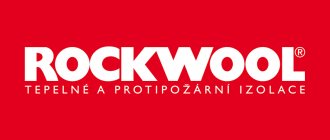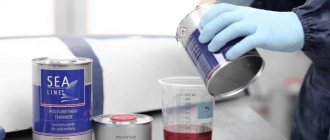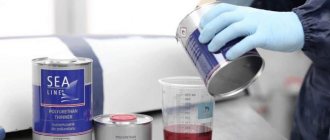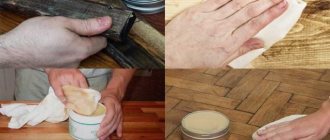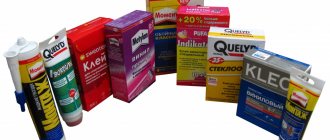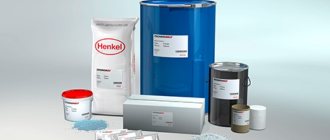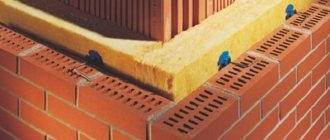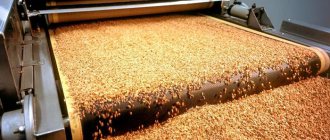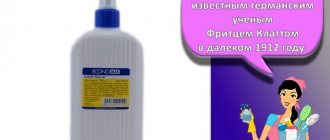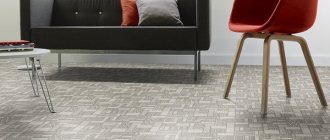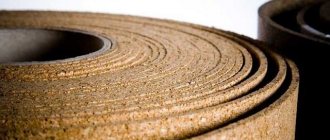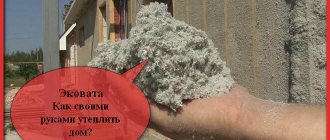Basalt slabs TechnoNIKOL GreenGuard Universal 50 mm. 600x1200 mm. Photo by Leroy Merlin
We decided to highlight the story about mineral basalt slabs as a separate topic.
What it is, what they are, we will tell you at the very beginning, we will list all the varieties and their purpose. We hope that our illustrated material will be useful to those who are familiar with this subject firsthand and would like to receive information about it that will not be superfluous.
Dimensions
High heat-insulating and vapor-permeable properties allow its use for insulation of all building elements:
- floors;
- canvases;
- walls;
- floors;
- roofs.
Manufacturers took into account the most common design features of buildings and organized the production of a flexible range of basalt slab sizes.
Width: 500, 600, or 1000 mm. Length: 800, 1000 or 1200 mm. Thickness: 20, 25, 40, 50, 80, 100, 130 and 200 mm.
Photo
A small gallery of photos of basalt slabs will give you an idea of how different slabs from different manufacturers, with different densities and thicknesses can look.
Basalt slabs ISOROC Super Warm. Teplostroy Photos
Basalt slabs Rockwool Standard 50 mm. Photo by Leroy Merlin
Basalt slabs Acoustic ultra-thin Rockwool 27 mm. Photo by Leroy Merlin
Thermal and sound insulation
Plates from all well-known manufacturers have good heat and sound insulation properties. Thus, depending on the quality, basalt slabs have a thermal conductivity coefficient of 0.03-0.036 W/(m*K), thereby surpassing in this parameter all types of bulk insulation and only slightly inferior to technologically advanced and expensive slab insulation made of foamed polystyrene.
Good sound insulation of basalt slab is due to its low density. Large manufacturers have a line of special acoustic basalt slabs in their assortment.
The process of installing flat roof insulation on a base made of profiled sheets Source Okno-pro.ru
The high vapor permeability of the insulation, amounting to 0.3-0.5 mg/m*h*Pa, makes it an ideal option for external wall insulation. Coupled with a low coefficient of water absorption, no more than 2% by volume, it becomes possible to use basalt slabs for insulation:
- frame walls;
- attic and rafter systems, roofs;
- other wooden structures.
In order to make it possible to use basalt insulation in conditions of high humidity (in the kitchen, bathroom or in the ventilation system), manufacturers have provided a special line of slabs treated with a water-repellent compound. Such slabs are not afraid of short-term exposure to moisture, that is, they do not lose their thermal insulation properties.
Installation of insulation on cross lathing Source Tproekt.com
Is basalt wool harmful to health?
Particular interest in the degree of harmlessness of basalt wool is caused primarily by the fact that the material is actively used as insulation. People come into contact with it, so it is important to know whether the composition poses a threat. If you look at the question objectively, the material does not pose any threat, it is environmentally friendly.
Previously, glass wool was widely used as an insulating composition, which could really cause irreparable harm to health. Basalt insulation cannot be compared with it. The harm to health depends entirely on how well the insulating layer is made. If it is not there, then the material may cause certain problems.
The main problem with basalt-based products is that they can crumble during installation. If the worker is not wearing protective elements (gloves, respirator, goggles), tiny particles may enter the lungs and result in an allergic reaction. Once on the body, the particles can cause itching.
Important! If it gets into the eyes, there is a risk of damage to the mucous membrane.
Above we are talking about materials where the protective shell is of minimal thickness and of poor quality. Purchasing high-quality insulation from a reliable manufacturer guarantees that no harm will occur. Usually the installation process takes place outdoors, so you won’t have to breathe air containing sharp particles. It is worth checking the quality certificate required for branded products.
After working with stone wool, you should wash yourself completely, paying special attention to cleaning your head. Gloves and other protective elements are unlikely to be washed. It is better not to use them anywhere.
Fire safety
Basalt slabs are characterized by increased fire resistance. Melting of the material occurs when exposed to temperatures not lower than 1100 °C for at least 2 hours. When ignited, basalt wool does not emit smoke or other toxic volatile compounds. High-quality slabs manufactured in accordance with GOST meet all modern fire safety requirements and can be used in wooden housing construction without any additional fire safety measures.
A clear example of the heat resistance of a basalt wool slab Source Lubnyastroy.rf
How is stone made soft and fluffy?
Let's reveal a secret: to turn a real stone into soft cotton wool, it is melted in an oven at a temperature of 1300-1500 degrees Celsius. Only at this temperature does basalt become liquid. It drips into a rapidly rotating large flywheel, or immediately seeps through micro-holes into the centrifuge - depending on what technology is used in production.
There, organic matter is added to the fibers formed from the droplets. Fibers under different pressures are formed into mats and slabs. This is how stone wool reaches its final microstructure and density:
In real life this process looks like this:
Interesting, isn't it?
Pros and cons of basalt slabs
Despite the fact that basalt slabs have an impressive number of advantages, they also have disadvantages.
| pros | Minuses |
| Non-flammability, high fire resistance | High requirements for compliance with construction and installation technology |
| More effective than many other slab insulation materials: glass wool, slag wool, etc. | Completely loses its properties when significantly wet. |
| Long service life | Cannot be used in basements or basements |
| High sound and vibration absorption | When used indoors, a vapor barrier must be installed |
| Easy to install | — |
Comparison with analogues
Photo: This thing will be quiet.
Many people confuse basalt wool with other mineral thermal insulation materials. The similarity lies in the fibrous base, and that’s basically where it ends. Each type of insulating wool has its own characteristics and characteristics that affect the area of application. The difference between basalt wool and analogues lies in the use of different raw materials. The basalt slab is based on volcanic rock. During production, raw materials are crushed into small fractions and further heated to more than 1000 degrees Celsius. The material melts and becomes viscous, after which it is blown in a special air turbine to produce thin fibers. Another difference between basalt wool is that it is produced in slabs and rolls.
Varieties
There are several main types of basalt slabs, depending on their intended use:
- roofing;
- façade;
- wall;
- acoustic;
- hydrophobonized.
The process of installing roofing insulation Source Dobrostroy.rf
The main parameter that varies depending on the purpose of the slab is its density. High-density slabs can withstand significant loads and have a compressive strength of more than 30 kPa. The densest slabs are positioned by the manufacturer as a complete base for roofing. On the other hand, high density reduces the thermal insulation properties of the slab and also significantly increases its cost.
Application of basalt wool
The resistance of the heroine of the article to moisture and fire makes the insulation universal. It is used both inside houses and on their facades. Insulation with basalt wool is relevant for baths, pipelines and metal structures, chimneys. In the latter, the material serves as a thermal barrier, preventing the fire of materials adjacent to the pipe.
The heroine of the article insulates not only the walls, but also the ceilings and floors. The main thing is to choose the right density of basalt wool . On floors subject to stress and vibration, for example, compacted sheets are needed.
The loose ones here will still thicken over time. On the walls, airy cotton wool will do. We're talking about interior decoration. On the facade, dense sheets are needed. These can be coated with plasters.
Also, foiled basalt wool . The coating on it provides additional protection from moisture. The insulation still absorbs some water, and in façade systems contact with vapor is common.
With the correct selection and installation of wool, it will last at least 30 years. These are the manufacturers' guarantees. In fact, the insulation does not “remind” itself for 50-70 years. Consumers are captivated by the verifiability of the numbers, since the production of the heroine of the article is almost a century old.
Selection of basalt slabs
Choosing a type of slab should begin with determining the place of its application:
- roof or attic insulation;
- insulation of frame walls;
- external insulation of aerated concrete walls;
- many other options.
Specialized foil fireproof insulation for stoves Source Technowool.com.tr
Of course, the selection and purchase of insulation should be entrusted to professionals. But, manufacturers have provided a wide range of products, positioned according to the type of intended use.
| Purpose | Brand |
| Base and insulation of flat roofs | TechnoNIKOL Technoruf N30, Izovol K-120 |
| For roof or attic | TechnoNIKOL Technolight Extra, TechnoNIKOL Technoruf, Izovol Izobel L-25, Paroc Extra, Greenguard Universal, Isover Master of Warm Roofs |
| For walls and partitions | Rockwool Light Butts, TechnoNIKOL Technoblock/Technolight, Rockwool Acoustic Butts |
| For facade | TechnoNIKOL Technofas, TechnoNIKOL TechnoFas Cottage, Rockwool Facade Butts, Izovol F-120, TIZOL Euro-Facade Optima |
| For ceilings and floors | Rockwool Light Butts, Rockwool Acoustic Butts, Rockwool Floor Butts, Paroc eXtra Light, TechnoNIKOL Rocklight, Izovol St-50, Isover Frame House |
Basalt wool price
The price of basalt wool depends on the degree of compaction and type. There is also a premium for brand awareness. Thus, Rockwool basalt wool costs about 2,000 rubles per cubic meter.
For products from little-known companies they charge about 25% less. The location of the company also plays a role. TechnoNIKOL basalt wool , for example, is domestic. You can save about 15%.
Foil cotton wool is more expensive than regular cotton wool. When it comes to forming material, cylinders are the most valued. For an aluminum-coated sample 21 centimeters long and 4 centimeters wide, you will pay, on average, 600 rubles.
For the same money you can buy 4 slabs measuring 120 by 60 by 10 centimeters. It also happens that cotton wool is 5 centimeters wide. It is taken for moderate climates and buildings that do not require extreme insulation.
Main manufacturers
Several large manufacturers of basalt insulation materials operate in the Russian Federation.
TechnoNIKOL
TechnoNIKOL Construction Corporation is one of the five largest manufacturers of thermal insulation materials in Europe. The main line of basalt insulation:
- Technolight - used for insulating surfaces with low external loads.
- Tekhnoruf is the structural basis for fused bitumen roofs.
- Technovent are hydrophobonized slabs designed for insulation of ventilation systems and certain types of rooms with high humidity.
- Technofas – facade panels used in civil and industrial construction.
- Rocklight is the most common line with low specific density, used for insulation of all types of structures: floors, ceilings, walls, attics, etc.
Exterior view of the TechnoNIKOL insulation production plant Source Kraski-net.ru
Rockwool
Rockwool products are familiar to Russian consumers thanks to their narrowly targeted lines of basalt slab insulation:
- Rockwool Acoustic Butts is a high-quality soundproofing insulation. The use of special fiber allows the production of acoustic insulation without the use of a foil layer.
- Rockwool Facade Butts - construction market professionals appreciated the high strength qualities and ease of installation of facade panels.
- Rockwool Scandic is a line of insulation materials designed specifically for private housing construction.
Photo of a workshop at a Rockwool insulation production plant in Europe Source Innotechs.ru
Review of manufacturers, or what does the Russian market offer?
Let's look at which manufacturers today supply stone wool to the domestic market of insulating materials:
Knauf: recognized world leader
The most famous manufacturer of stone wool in the whole world is the German concern Knauf. He began producing products in 1932, and in the field of thermal insulation he mainly specializes in basalt fiber, although he sometimes produces fiberglass materials.
Knauf has a fairly well thought out choice of insulation for different house structures; for this purpose, they produce as many as five series: for the roof, and for the walls, and for the ceiling and partitions. Knauf also has universal mineral wool, which is suitable for any task:
Today Knauf produces stone wool literally for the whole world. But, unfortunately, buyers often complain about the increased rigidity of the slabs, which prick.
Of course, it’s not like glass wool; it’s more likely that there’s just an unpleasant sensation when working with bare hands. On the other hand, no one abroad would even think of working with cotton insulation without gloves.
Rockwool: high quality
No less famous is Rockwool - a Danish company operating since 1909. All its factories use only European equipment, which the company is especially proud of. Stone wool is supplied in the following forms:
By the way, Rockwool also has factories in Russia. Among other advantages of this basalt insulation, users usually note that it does not crumble or shrink, and also pleases with a wide selection of sizes and packaging. Those. It’s quite easy to choose the right option for building your home.
Ursa: expensive equipment
But Ursa have developed a new line of mineral wool. In fact, these are three entire production sites operating as the Ursa Eurasia association. Their main trump card is high-tech equipment. Previously, they worked more with fiberglass slabs, but today they use more natural basalt raw materials with acrylic-containing components.
Urs also has factories in Russia, namely in the city of Chudnovo. According to the manufacturer, new high-tech equipment from Europe was also imported there, and therefore you don’t have to worry about quality.
And Russia especially liked the Pureone series. By the way, this manufacturer’s basalt insulation is considered one of the best in terms of sound and heat insulation, although it has insufficient vapor permeability, as some complain.
TechnoNIKOL: for special loads
TechnoNIKOL is one of the most famous manufacturers of basalt insulation in Russia, producing its products under the Rocklight brand:
Interestingly, each TechnoNIKOL enterprise has its own laboratory. Thanks to this, multi-stage control is constantly carried out over the products. As a result, TechnoNIKOL received a European level certificate for its products.
And at one time, TechnoNIKOL modernized its production lines and was able to achieve a rather unique property of mineral wool - increased rigidity, thanks to which each basalt slab can withstand a load of up to 7 tons. The manufacturer is also trying to make the insulation unattractive to small rodents, since they really love such materials.
But, unfortunately, this insulation still has problems with hydrophobicity. There are also sometimes reports that mice especially love this mineral wool, and new slabs sometimes have an unpleasant chemical smell.
Isover: enviable durability
Basalt wool from the French company Isover has been produced for a very long time - more than 80 years. Such slabs are good because even over many years they do not change their shape and do not lose their properties.
Among the disadvantages, only poor moisture resistance and the repulsive odor of the material are noted.
Izovol: the best fire safety
Good technical characteristics are also noted for basalt wool brand Izovol. It is produced at the Belgorod plant, in accordance with the requirements of both domestic and foreign standards.
For example, mineral wool from Izovol is famous for its improved fire safety. And therefore, such products are used not only for private, but also for industrial construction, especially for pipe insulation. The whole secret is that Izovol produces its wool using a completely different technology than its competitors - it melts all components with gas.
This technology uses a unique melting device, which allows the production of fibers through a constant high melt temperature, thus providing the desired fluidity and viscosity. This allows us to achieve slightly different technical characteristics of fibers than competitors' products.
Izovol is proud that no blast furnace slag is used to make its stone wool. Finished basalt wool is supplied to the CIS countries as having such advantages as lightness, non-flammability and a fairly wide range of applications. But among the shortcomings they indicate slight shedding during the installation process.
Isorok: domestic quality
We’ll also tell you a little about mineral wool from the Isorok company. It has been produced in Russia since 2000. The main difference is their universal characteristics: the slabs are dense and stable, and cope well with the tasks of heat and sound insulation. Among other insulation materials, this stone wool takes its rightful place.
Paroc: reliability and practicality
Another popular manufacturer is the Finnish Paroc. It produces energy-efficient panels and basalt wool. There are Paroc factories in Russia, and its products can often be seen at Moscow construction exhibitions.
Among the advantages of basalt wool of this particular brand are its harmlessness and fire safety. Disadvantages: slight dust during operation and low-density slabs are not of the best quality.
But you will be interested to know that Paroc today occupies a leading position in the production of mineral wool throughout the world. According to the manufacturer himself, the whole secret of their success is in the coherence of the staff. Therefore, you should definitely trust this brand.
Euroizol: unique technology
The manufacturer Euroizol generally uses an interesting technology for the production of stone wool. The threads are stretched in a special way, due to which they become longer and the diameter of the fiber increases. And this improves the technical properties of the insulation. Even when working with such a slab, you will probably notice that the wool is more flexible and durable.
The secret is that the longer the fibers, the greater the compressive, tensile and shear strength. And a larger diameter of the threads improves heat-conducting and sound-absorbing properties during operation.
Thanks to these innovations, Euroizol was able to launch a line of lighter and more cost-effective insulating materials, since with such fiber it is possible to make them of lower density. This means the load on the roof will be reduced.
Beltep: proven wear resistance
The Belarusian Beltep, beloved by many, is in the budget segment. This wool has good vapor permeability and high rigidity.
Beltep products are designed for insulation of private houses and for industrial use. Its main advantage and marketing emphasis is the wear resistance of the products. True, the slabs have a certain pungent odor due to the phenolic resins contained inside, which disappears over time.
Video description
Instructions for installing basalt wool or how to insulate a house with your own hands.
Outdoor installation
External is the most preferred method of installing basalt slabs. Depending on the material of the walls, the slabs are attached to the wall or roof using mortar glue or vertical (cross) lathing made of a wooden block or metal profile. With proper skill and accuracy, performing this work will not be difficult. This type of installation has a number of advantages:
- The correct “pie” of building structures is maintained, allowing moisture to escape from the house. And if it is not possible to organize the correct order of vapor permeability coefficients (for example, in brick houses), then, unlike installation from inside the room, external installation allows you to organize a ventilation gap that removes excess moisture from external building structures.
- The dew and freezing point shifts “outward.” The walls freeze less often and to a lesser depth, which has a positive effect on their service life.
Upon completion, external insulation can serve as a basis for finishing the façade of the house:
- decorative plaster;
- siding;
- block house;
- other finishing materials.
Basalt insulation Izover Master of warm walls
The slabs are fixed to the wall using special glue. For subsequent fastening of the insulation, a set of dowels is used. It is recommended to choose one manufacturer as the adhesive and insulation, since the possibility of combining home-made products during the installation process is taken into account.
Despite the manufacturability and familiarity of basalt mineral wool, we recommend an innovative product for the above operations - quartz-based mineral wool. Isover Warm Walls Strong will do an excellent job with this. Elastic material is more convenient for installation, does not burn, is environmentally friendly for humans and will last up to 50 years.
Why is it worth ordering wall panels from TechnoStyle Group of Companies?
In Moscow, many companies offer sandwich panels, but only a few sell their products at an affordable price and with a quality guarantee.
By purchasing structures for wall cladding made of basalt fiber in Moscow from, you get:
— high-quality products with the provision of accompanying documentation and certificates; — production of panels according to the requirements of architectural projects; — prompt delivery of finished products to the address specified by the customer; — expert recommendations from designers and technical specialists — competitive prices for sandwich panels and favorable special offers for regular customers.
You can order material and find out the exact cost directly on the company’s website or just call. If necessary, specialists will advise on the choice of material.
The capacity of the production base makes it possible to fulfill orders of any complexity in a short time and deliver the required quantity of material to work sites.
Content
- Why do you need basalt insulation?
- Composition and principle of operation of basalt insulation
- Types of basalt insulation and scope
- Classification of basalt slabs
- Advantages of mineral wool
- Flaws
- Installation rules
- Basalt insulation Izover Master of warm walls
- Insulation for walls based on quartz Izover warm walls strong
Basalt mineral wool is used at construction and industrial sites to insulate façade elements, foundations, roofs, and floor coverings. The material is characterized by a low thermal conductivity coefficient, making it an effective insulator. For ease of use, stone wool is produced in the form of slabs, rolls and cylinders. Izover is the first and only manufacturer of both stone and quartz wool in Russia. Having full expertise in these matters, we will tell you about insulation based on basalt mineral wool.
Prices for wall sandwich panels with basalt insulation min. plate
| Thickness/mm | 40 | 50 | 60 | 80 | 100 | 120 | 140 | 150 | 160 | 180 | 200 | 240 | |
| Price RUR/sq.m from | 1045 | 1055 | 1080 | 1145 | 1196 | 1251 | 1321 | 1346 | 1379 | 1441 | 1491 | 1667 | |
Please check all prices for wall panels by calling: (499) 398-12-05
FAQ
When choosing insulation for a home, the question often arises of how safe basalt wool is. Taking into account the specifics of production, the material is made from environmentally friendly raw materials and cannot negatively affect human health and well-being. It is also worth noting the fact that basalt wool is a non-flammable material, so it also protects the room from fire.
Photo: Basalt wool.
People are also often interested in what criteria should be used to choose insulation for walls in an apartment. It is worth understanding that the thicker the material, the higher its thermal insulation qualities, however, too much thickness will reduce the area of the room. The optimal slab thickness for walls in an apartment is considered to be five centimeters. This thickness will be enough to retain heat and limit the penetration of extraneous sounds.
Basalt wool or ecowool
Basalt or stone wool has some similarities with ecowool. The thermal insulation qualities of one and the second insulation depend on the density of the product. Basalt wool is made from rock, which makes the material completely non-flammable. In the case of ecowool, it is considered a product of recycling paper waste. Fillers are added to processed raw materials to prevent rotting and burning. The structure of the basalt slab has a solid base and can be installed under various conditions. As for ecowool, it is free-flowing, so a certain system is required during installation, so making thermal insulation yourself will be problematic.
Basalt wool or mineral wool
All materials have both pros and cons. To figure out which is better, you need to consider the characteristics of the materials. Basalt wool is made from rock by melting. In terms of thermal insulation properties, basalt wool is better, since the structure of the materials has a significant difference in the number of fibers and loose structure. Of course, it’s impossible to say for sure that basalt wool is better, but according to some criteria it is still superior to mineral wool.
Basalt wool or slag wool
A fairly popular thermal insulation material is slag wool. In fact, this material is considered one of the types of mineral wool. Slag wool is made using blast furnace slag. The manufacturing technology is similar to basalt, but the properties and characteristics of the materials differ. Slag wool, like basalt material, is made in the form of slabs. Slag wool can be used to insulate temporary premises not intended for living. Hygroscopic parameters do not allow the material to be used for pipeline insulation.
To summarize, we can say with confidence that there is a lot of heat-insulating materials on the modern market, and you need to choose based on the characteristics and intended work. Having made a comparison, we can confidently say that the most ubiquitous material is basalt wool, since its characteristics exceed other types of insulation.
Sound insulation STP: models, advantages and properties Sound insulation Rockwool “Acoustic Butts” Sources
- https://masterok-remonta.ru/sovety-po-stroitelstvu/chto-takoe-bazaltovyy-uteplitel-opisanie.html
- https://KrovGid.com/izolyaciya/bazaltovyj-uteplitel.html
- https://stpoyka.ru/bazaltovaya-vata-opisanie-svojstva-primenenie-i-cena-bazaltovoj-vaty/
- https://teplota.guru/teploizolyatsiya/kak-pravilno-vybrat-bazaltovuyu-vatu.html
- https://ProAntiShum.ru/materialy/bazaltovaya-vata
- https://zastpoyka.ru/bazaltovaya-vata-opisanie-svojstva-primenenie-i-cena-bazaltovoj-vaty/
2 863
Protection level
By using SIP with basalt insulation, you don’t have to worry about additional finishing and protection. The cladding has the following properties:
- profiling provides rigidity;
- the metal is coated with a layer of zinc, which protects against moisture and guarantees the absence of corrosion;
- the outer layer is an organic-based coating or durable powder coating.
Important to know: Design features of various types of SIP panels
The latest generation of SIP composites can be selected by color, size, and there are many options of varying thicknesses available. They do not require any secondary finishing of the walls of the finished building, therefore they significantly save the budget. And if you consider that the roofing of a house can be done very easily and quickly, it becomes clear why such a material is becoming increasingly popular every day.
Application areas of wall panels
The scope of application of “sandwich” panels is determined by the project, taking into account the instructions and restrictions and Construction Norms and Rules, State Standards, as well as taking into account the Technical Regulations and Federal Laws in force in the country in which the project is being implemented.
Wall sandwich panels are traditionally used as enclosing structures, partitions, suspended ceilings and fire barriers in the construction of buildings and structures for various purposes: - industrial and industrial buildings; — warehouse buildings; — shopping and entertainment complexes; — sports and recreational facilities; — hangars, gas stations, service station buildings, etc.; — residential buildings and hotels; — socio-cultural objects; — modular structures of rotational housing camps; - etc. One of the advantages of sandwich panels is the construction of objects of any size, both in plan, height and shape. The possibility of horizontal or vertical installation of panels in the design position allows rational use of load-bearing frame elements, as well as giving architectural expressiveness to buildings and structures.
Features of mineral wool panels for walls
Mineral wool wall sandwich panels are a large-sized composite multilayer structural element consisting of metal sheathing and a basalt mineral wool core, interconnected by a polymer adhesive composition.
These products occupy a leading position in the market of enclosing building structures due to the following advantages: - light weight, with sufficient rigidity; — proven installation technology with minimal time and labor costs; - noise and thermal insulation; — no need for additional finishing work; — resistance to moisture, ignition/burning, chemical and biological corrosion, atmospheric and natural influences; — environmental safety; — durability; The group produces sandwich panels according to a standard “line” of sizes and from materials approved by relevant standards, and also accepts orders for products according to the required physical, mechanical and dimensional parameters.
